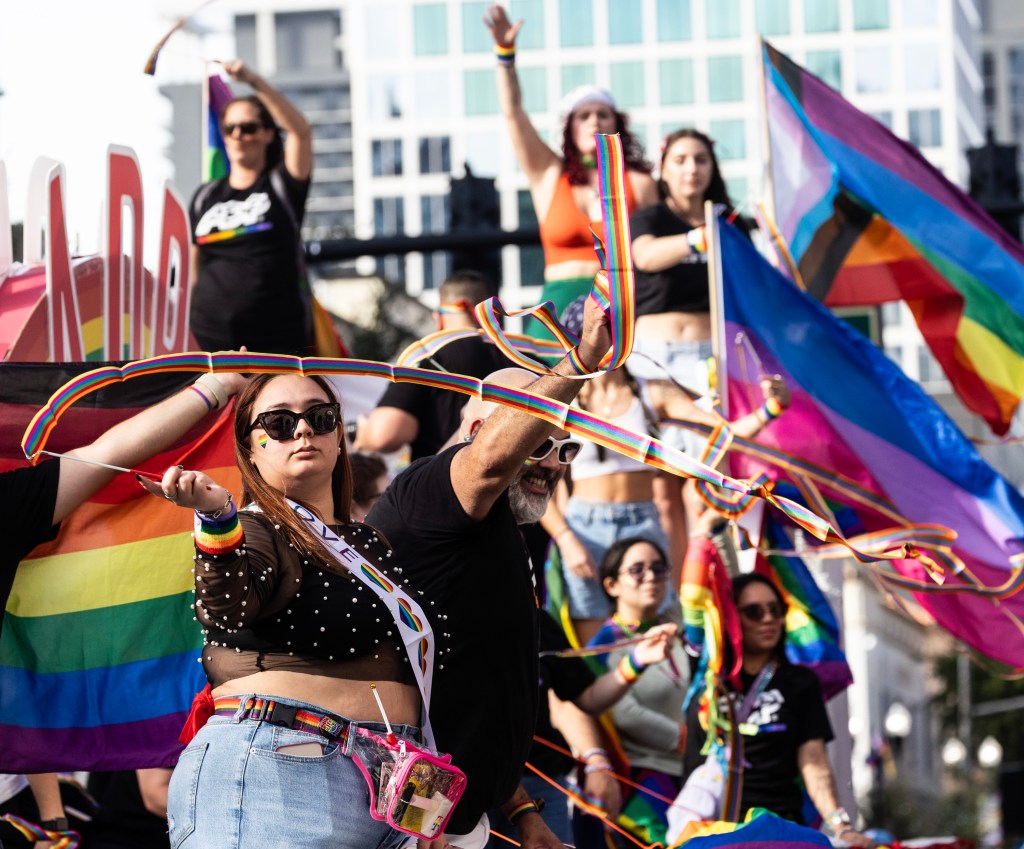Here’s what the president had to say about Orlando’s annual Pride celebration, which has grown into a daylong festival that draws people together across all walks of life:
In this great country, founded on the principle that we are all created equal, you fulfill our nation’s charter by standing up for what you believe. Your work on behalf of the gay and lesbian pride movement is making a real difference in our struggle to create a world where everyone is free to make his or her own contribution to society.
Well, we didn’t say it was the current president. This letter from President Bill Clinton was sent in 1994, a few years after Orlando started its annual Pride parade and celebration of LGBTQ+ community members. Clinton’s words were somewhat guarded, but reflected a world that was changing for the better — toward a day when people wouldn’t be stigmatized, financially ruined or physically attacked for something so fundamental as their sexuality.
Pride celebrations sprang up in other Central Florida communities, but none were as big or as vibrant as Orlando’s – and few saw such a coordinated effort to change hearts and minds. The annual Pride parade grew in length, in vibrancy and in star power: In 1996, then-Supervisor of Elections Betty Carter served as Grand Marshal. Local and national businesses were also taking note, and setting up booths on the grassy park around Lake Eola.
Over the following decades, barriers kept crashing down: Many local employers dropped their automatic opposition to employees who were gay, and would eventually adopt anti-discrimination policies that, for the first time, included LGBTQ+ employees in their embrace. Florida’s ban on adoption by same-sex couples crumbled in 2010 and was officially abolished (in a bill signed by then-Gov. Rick Scott) in 2015. That same year, the Supreme Court struck down the barriers to gay marriage, and the military’s don’t-ask-don’t-tell policy faded in favor of a broad policy of non-discrimination.
Along the way, this city proved that those landmark wins were only part of the equation. What Orlando nurtured was something less definable, but more sustaining: An early rejection of the cruel attitudes that still burdened other parts of the state and nation — replacing repression with joyful community that helped sustain Orlando through the greatest tragedy in the city’s history: the mass shooting that claimed 49 lives at the Pulse nightclub.
But there are shadows gathering, and a very valid fear that the unity and acceptance that are the keynote of Orlando’s Pride festival, and dozens of other celebrations around the state, are under attack. Some cities, including Kissimmee, Tampa and Fort Myers, have cancelled their Pride celebrations.
They are reacting to a climate that is slowly reinstating some of the old prejudice and fear. Florida Gov. Ron DeSantis and many state legislators have adopted revisionist policies that strip books from school libraries for simply acknowledging that LGBTQ+ people exist. They have increasingly singled out transgender people and drag-show entertainers for scorn and ham-fisted repression.
This toxic aggression is all the more cruel for its cynicism; the most recent attacks on the LGBTQ+ community play to the lowest common denominators of suspicion and hate.
Against this backdrop, Saturday’s Come Out with Pride celebration, scheduled from noon-10 p.m. in Eola Park, serves as an affirmation: Orlando gathers to celebrate love and elevate community. To connect with each other in a vast celebration of shared humanity that includes the faith community, local businesses and civic officials
And of course, as always, it will be a heck of a party.
Happy Pride, Orlando. May the light, color and joy of this celebration remind us why this city is so special, and inspire us to stand together against forces that seek to divide and conquer.
The Orlando Sentinel Editorial Board consists of Opinion Editor Krys Fluker, Executive Editor Roger Simmons and Viewpoints Editor Jay Reddick. Contact us at insight@orlandosentinel.com

